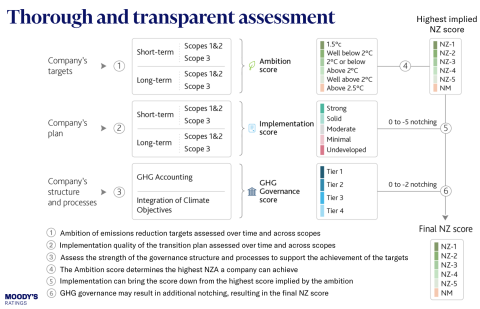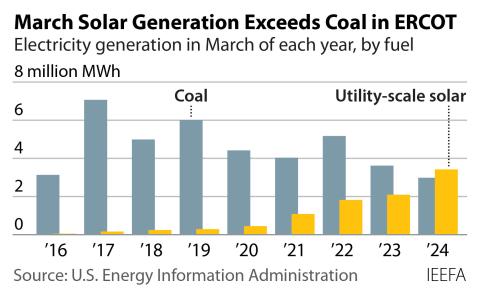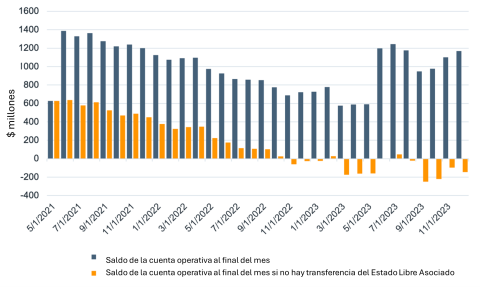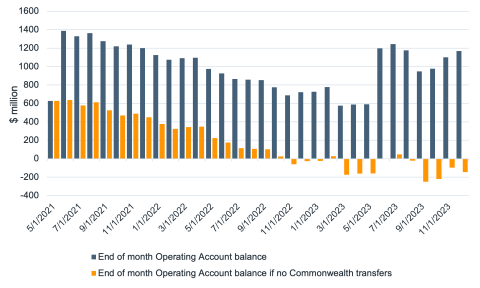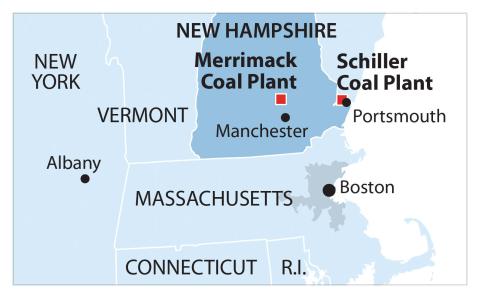IEEFA update: Swimming in oil and nowhere to put it?
The Energy Information Administration (EIA) reports that U.S. oil stores grew by another 15 million barrels this past week. That’s the third-highest weekly storage build ever, trailing only the previous week and the week before that.
In other words, the last three weeks have contributed to the fastest month-over-month storage build of all time: 63.3 million barrels of new crude oil storage in 28 days. That’s roughly 2.3M barrels of oil per day, or a little under 20% of U.S. production, going straight into storage tanks.
Excluding the Strategic Petroleum Reserve (ex-SPR), U.S. crude oil stocks stood at 519 million barrels last Friday. At last week’s pace of build, U.S. oil storage ex-SPR will reach an all-time high by this Saturday, or maybe Sunday.
RECORD-BREAKING STORAGE DOESN’T MEAN THAT ALL REPOSITORIES ARE COMPLETELY FULL. For starters, there’s room for about 78M additional barrels in the Strategic Petroleum Reserve ‒ which would be filled in a little over a month at last week’s rate of storage build.
There are some potentially risky suggestions for finding additional capacity
Plus, we’re seeing some unusual (and potentially risky) suggestions for finding additional capacity, including storing up to 25 million barrels of oil in unused rail tank cars.
Floating storage ‒ i.e., oil tankers ‒ are starting to fill up off the California coast and elsewhere. But storage is getting harder to find. The world’s largest independent oil storage company reports that almost all of its space has been sold ‒ anyone with spare capacity will be able to charge steep fees for their tanks.
THERE ARE ALREADY CLEAR SIGNS OF A STORAGE CRUNCH at key locations, particularly near Cushing, Oklahoma, the location pegged to U.S. oil futures contracts, where storage was over three-fourths full as of last Friday. Projections of full storage at Cushing by May contributed to the unprecedented oil price crash into negative territory on Monday, as traders desperately sold contracts to avoid having to find a place to store the oil that they had committed to buy.
Looking beyond crude oil, volumes of refined products in storage rose by 43.5 million barrels over the past month, suggesting a surplus of more than 100 million barrels of oil and refined products in March alone. At that clip, refined product storage will hit an all-time high in two to three weeks.
Without production declines, oil storage would be filling up even faster
In related news, EIA reports that U.S. oil production fell by about 0.8 million barrels per day over the past month. Without those declines, U.S. oil storage would be filling up even faster. And if production declines steepen, the day of reckoning, when U.S. oil storage is completely saturated, may be somewhat delayed.
But even with production declines, the U.S. is already running desperately short of oil storage. Already, evidence grows that we will soon see regional crunches that will have dire effects on prices in parts of the country. “Oil behind a pipe” ‒ that is, oil that’s far from storage hubs and production and refining centers ‒ is already seeing steep price declines, and some buyers are demanding to be paid to take crude off producers’ hands.
It’s anyone’s guess when the current oil glut will slow. But except for those who happen to own an oil storage tank, these are bleak days indeed for anyone involved in the oil and gas industry.
Clark Williams-Derry is an IEEFA energy finance analyst.
Related items
Update U.S.: IEEFA Director of Finance urges oil production cuts at Texas Commission Hearing
IEEFA update: Oil majors paid $216 billion more to shareholders than they earned directly from business over the past decade
IEEFA update: Loan program for coronavirus-impacted businesses excludes oil and gas companies. Or does it?




